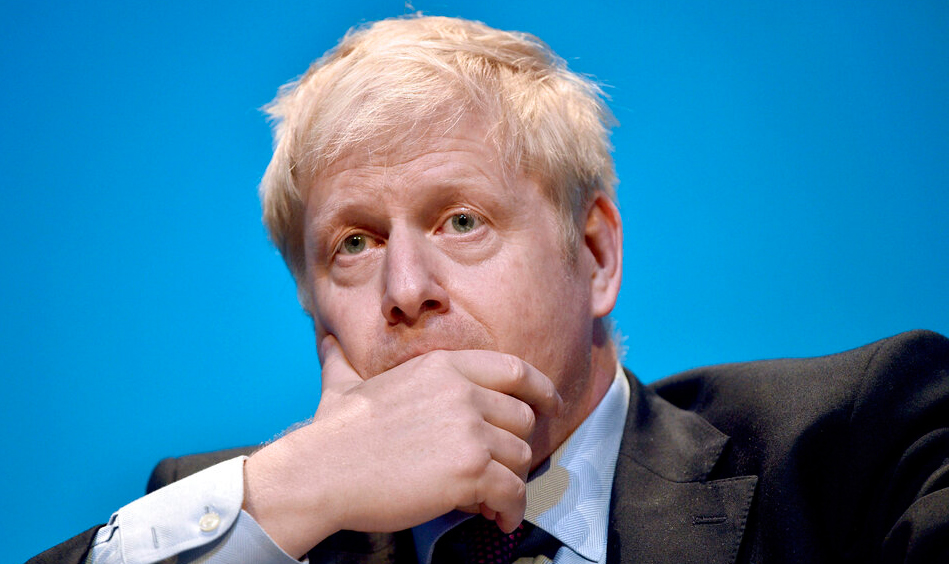Barring the truly unexpected, the United Kingdom will have a new prime minister in July. In the past, the selection of a mid-term prime minister was a relatively smooth affair, particularly in the Conservative Party. Before the scope of the ‘royal prerogative’ was drastically diminished, the choice of a prime minister, in the event of the incumbent dying or resigning mid-term, devolved on the monarch. Thus, when Bonar Law died in office in 1923, the king was compelled to choose between two stalwarts — Lord Curzon and Stanley Baldwin. Much to the anger and bewilderment of the former viceroy of India and foreign secretary, he chose Baldwin — someone whom Curzon petulantly described as “a man of utmost insignificance”.
In subsequent years, the choice of a new prime minister fell on the ruling party MPs. In a recent article, Lord Tebbit — one of Margaret Thatcher’s most able lieutenants and a former chairman of the Conservative Party — described this process as most appropriate since they would inevitably elect someone whose leadership skills they had witnessed in Parliament. With the evolution of grassroots democracy and the growing importance of party activists, MPs can no longer be the sole decision-making body. The lay membership are also consulted and, in the case of the Labour Party, have the most decisive say. The present Labour Party leader, Jeremy Corbyn, enjoys the support of only a minority of party MPs but has the resounding endorsement of the party’s grassroots membership and the trades unions.
The choice of who will succeed Theresa May in 10 Downing Street has narrowed down to two individuals: Boris Johnson and Jeremy Hunt. In the ballot of MPs, Johnson prevailed after five rounds of polling — each involving the elimination of those who polled the least —and now it is up to the party members to give the final verdict.
On paper, both candidates have strong credentials. Hunt, the present foreign secretary, is a traditional Tory — a former Head Boy of Charterhouse, Oxbridge educated with a very Establishment pedigree. He is sober, measured in speech and quite moderate in his views. He fits the classic Conservative preference for being non-ideological and wedded to pragmatism and common sense. By contrast, Johnson — an Etonian, Classics graduate of Oxford and a former journalist — is definitely more flamboyant. Blessed with an enviable way with words, he surprised everyone by becoming a very successful two-term Mayor of London — a city where the demographic mix does not favour the Conservative Party. He was one of the most visible and vocal faces of the successful Brexit campaign and played a seminal role in ensuring a surprise result in the referendum of 2016. He was probably a little less successful as foreign secretary and got into trouble for letting his eloquence get the better of his official brief. A Churchill devotee who loves to shock, Johnson combines his dishevelled appearance with a popular touch. He can entertain a crowd, but he can also inspire.
In normal circumstances, the selection of a Conservative Party leader would not have elicited too much excitement. As a rule, Conservatives prefer continuity and even stodginess. Curzon was by far more talented than Baldwin, but the latter was by far more rooted in his dullness. Likewise, the deeply provincial Neville Chamberlain was liked, and Winston Churchill positively disliked by the pre-War Conservative Party. Had it not been for the reverses of 1939-40 and the need for audacity, Churchill would never have prevailed over Lord Halifax — another former viceroy of India (Lord Irwin) who failed to secure the top job. Margaret Thatcher was by far the most ideological of all Conservative leaders. However, this facet of the Iron Lady was unknown to party MPs who, at the time of her selection as leader, merely saw her as a convenient way of getting rid of Edward Heath who had become too bothersome.
By this logic and under normal circumstances, the stodgy Hunt would probably have prevailed over the flamboyant Johnson. His advantage would have been all the more because Johnson carries the burden of an excessively colourful life that includes two marriages, many extra-marital affairs, children outside marriage and a turbulent relationship with his present girlfriend. In the old days, the Conservative Party rooted in the Shires and the Women’s Institute would have positively balked at the idea of a leader — and prime minister — with such a permissive past and present.
But these are not normal times. The majority vote for leaving the European Union in 2016 was produced by a mass of traditional Conservative voters and a significant minority of old-style Labour voters — particularly in the depressed areas of northern England — joining hands in an unlikely convergence. The rank and file Conservative enthusiasm for Brexit was, however, not matched by any similar enthusiasm among its MPs. Prime Minister May, for example, was a Remainer, as was Hunt.
Whether this reluctance to rock the boat had anything to do with the resulting stalemate in negotiations with the EU is best left to future historians to assess. What can be said with certainty is that the convoluted negotiations and the outright decision of a majority of MPs to defy the mandate of the referendum led to a crisis of confidence in British democracy. This manifested itself in last month’s elections to the European Parliament when a newly-formed Brexit Party, led by the pro-Brexit campaigner, Nigel Farage, upstaged both the Conservative and Labour parties. The outcome of the election suggested that the British Establishment hadn’t been able to dampen the enthusiasm for Brexit and that the parties which maintained ambivalence were likely to be punished by voters. The voters were less uncharitable towards the Liberal Democrats and the Green Party that were consistent in seeking to stay within the EU.
It is in this context that the appeal of Johnson must be viewed. Johnson was among the early supporters of Brexit, a position he has consistently maintained. Some tactical miscalculations prevented him from emerging as the obvious successor to David Cameron in 2016. But even after May became prime minister with an implicit mandate to steady the ship, Johnson never eased up on the pressure to achieve Brexit. Using Churchillian imagery, he conjured up a picture of a beleaguered Britain finally discovering its soul and reinventing itself as a citadel of free trade and national sovereignty. In many ways, his was a very Trump view of British destiny and clashed frontally with the exaggerated cosmopolitanism that found favour with multicultural London.
It is his ability to articulate a very old-fashioned British nationalism that has led to Johnson being loathed by the British Establishment. This includes, in particular, the bureaucracy and his former colleagues in the media. The Times, for example, has done hatchet jobs on his personal life and seems to have tacitly endorsed the view that he would be a security risk as prime minister by being vulnerable to blackmail. There is a point of view that says Johnson has no intellectual sympathy for the pro-Brexit British nationalism he espouses but is driven by relentless ambition. The smart set in London despises Johnson because they see him as both a poseur and betrayer. Farage, the jolly Brexit campaigner, is mocked as a golf club bore but Johnson is viscerally hated.
The irony is that the more the pillars of trendy London despise Johnson, the more is his appeal to those who also see themselves as victims of condescension. Johnson has promised to take the UK out of the EU by October 31 this year, either with or without a deal with Brussels. This is a risky venture. But clearly, this is a risk a lot of people feel is worth taking. Certainly, with Johnson at the helm, dullness will cease to be a defining characteristic of British politics.












